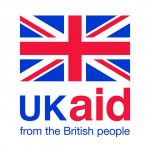The GSMA Thrive Asia Pacific 2020 event took place from 3 to 5 November 2020. The Mobile for Development (M4D) Utilities programme hosted a session focused on ‘Building Inclusive and Sustainable Cities through Digital Solutions’.
This session featured a range of different actors to discuss the opportunities and barriers for implementing digital solutions at scale. Our speakers also highlighted examples of how digital solutions are seeking to make service provision in cities more inclusive and sustainable, thereby improving resilience of these urban centres.
Two-thirds of the world’s population will live in cities by 2050, with most urban growth from now until then to be concentrated in Africa and Asia. This poses challenges to basic service provision as city authorities and utilities struggle to meet the demands of rapidly growing urban populations. During his Keynote, Vijay Padmanabhan, the Operations Director for urban development and water in the Asian Development Bank’s (ADB), shared how ADB is transforming urban utility service provision in Southeast Asia. ADB provides support to cities in four functional areas and Vijay shared the following examples of this work:

Our session was moderated by Dori Nguyen, manging partner at Utopia, an urban innovation group focused solely on emerging cities and their informal settlements. Utopia is creating a network of city labs across Africa, Asia, and Latin America to build an urban innovation ecosystem for emerging cities. During the session, Utopia underlined the value to be gained from sharing real-time data across cities, especially in the Asia Pacific region, where lack of data poses serious challenges. Thus, data-sharing can be the basis of many meaningful partnerships across cities with the capacity to improve service provision.
Mobile operators, such as Jazz Pakistan, play a key role as both participants and enablers of multi-stakeholder collaboration. In May 2018, Jazz received a grant from the GSMA M4D Utilities Innovation Fund to develop and implement a mobile-enabled theft prevention and loss reduction solution for an urban electricity grid distributor.
To develop this solution, Jazz provided machine-to-machine (M2M) connectivity and cloud hosting for all data generated by the solution and partnered with CISNR, a local start-up that developed a unique grid distribution monitoring system along with smart metering, and PESCO, a power distribution company serving over 2.6 million consumers. Reducing theft, and improving energy service reliability was the key aim uniting these three parties in their collaboration.
Through the project, Jazz improved electricity reliability for over 370,500 households. Following its success, Jazz and CISNR are partnering with the Government of Pakistan to deploy the solution with other distribution companies and utilities across the country. Jazz is also working with the government to create other smart city solutions that could improve service provision across Pakistan’s rapidly expanding cities.
Sami Ullah, head of M2M/IoT at Jazz Pakistan, also underlined how Jazz can create a bridge in public-private partnerships, between start-ups and governments. Jazz’s strong financial position means it can maintain long-term partnerships and its strong brand recognition can facilitate procurement processes with the government. In turn, this allows MNOs to tap into new market segments.
Qlue, a tech start-up, is also working with the government to improve cities in Indonesia. In November 2018, Qlue received a grant from the GSMA Ecosystem Accelerator Innovation Fund to expand its existing civic engagement platform, which includes training for government staff and support with citizen engagement. The platform allows users to actively report or share their neighbourhood conditions with city officials or businesses.
Maya Arvini, CCO & COO at Qlue, shared that Qlue is currently working in over 30 cities in Indonesia and is expanding across other countries in Southeast Asia. Qlue works with multiple stakeholders to ensure the safety of cities, from civil society organisations to police departments. The company is also actively engaged in the Jakarta Smart City project, which aims to harness the power of data, to make smart decisions and improve the daily lives of its citizens.
MNO partnerships have been a key supporter throughout Qlue’s scaling process. Qlue is based in Jakarta, and as a start-up, it doesn’t have the resources to set up offices or representatives country-wide. MNOs have provided valuable support to reach cities in other regions. Qlue also uses MNO data to assess the preparedness of each new location and are now looking to replicate this MNO partnership framework across several countries.
Qlue has been one of many entrepreneurs across emerging markets to innovate in the face of the COVID-19 crisis into. By using their already existing expertise, partnerships, and infrastructure, Qlue developed an IoT device that tracks body temperature and mask use in real time. This tool can also be used by both the private and public sector, as companies and governments seek to ensure the safety of their workforce and citizenry.
The COVID-19 pandemic has also magnified the value of digital tools in water service provision. Manila Water Company provides water treatment, water distribution, as well as sewerage and sanitation services to more than six million people in Manila. Digital tools have allowed the utility company to embed sensors in its distribution system to monitor real-time losses. As highlighted across many different countries and contexts, COVID-19 has also accelerated digital payments adoption, with Manila Water’s digital payment collection increasing substantially in order to protect its staff and users. As we have showcased in our recent paper with CGAP, such a rise in digital payments is likely to be associated with improved revenue collection efficiency as well.
Manila Water Company, is the product of a public-private partnership. Perry Rivera, COO of New Business Operations at Manila Water Company, spoke about the importance of the government role in setting dynamic and progressive public policy and regulation to enable private sector participation. In 2020, Manila Water Company partnered with the GSMA M4D Utilities grantee, Loowatt, and the manufacturer Lixil, to increase the coverage of sanitation systems to low-income communities. Loowatt deploys waterless, container-based sanitation solutions, and uses digital technology to track its waste collection processes, which are particularly suited to serve the urban poor. Mobile-enabled container-based solutions can be cheap to deploy, save water and can generate energy from waste.
RaddiConnect is also turning waste into opportunity. It is a resource recovery enterprise that works to divert waste away from landfills and oceans, and instead promotes circular economy solutions that ensures that is reused, recycled, or repurposed. RaddiConnect, which is supported by the CityFixLabs, is currently working across 20 cities in India. Its business model relies on technology to create a traceable waste loop to then leverage circular economy models. Technology has supported RaddiConnect in engaging and communicating with informal waste-pickers, and to optimise its complex value-chain.
RadiConnect works with three different key stakeholders: Governments, large corporations, and households. It partners with governments to help set up infrastructure and large-scale waste recovery facilities to ensure that waste is being handled responsibly across cities. It can be challenging for start-ups to work with the government especially in the context of complex procurement processes. Start-ups with integrated digital tools such as tracing platforms often have an advantage when forming partnerships with governments and large corporations, as these tools can provide transparency and traceability. RaddiConnect has also been working with large corporations (inc. Unilever) to help them comply with the Extended Producer Responsibility (EPR) waste policy in India. Here, technology plays a key role in ensuring that the waste can be collected, processed, and returned to the relevant companies.
We would like to thank all the speakers and attendees for participating and tuning in to this session. It is encouraging to see that stakeholders in rapidly urbanising economies recognise that while urbanisation poses a range of complex challenges, it also represents immense opportunity for innovation. By leveraging digital technology and creating partnerships, MNOs, urban policymakers, and service providers as well as innovators can unlock innovative business models that have the capacity to make basic services more sustainable and inclusive for the urban poor.
The GSMA Mobile for Development (M4D) Utilities programme is funded by the UK Foreign, Commonwealth & Development Office (FCDO), and supported by the GSMA and its members.



